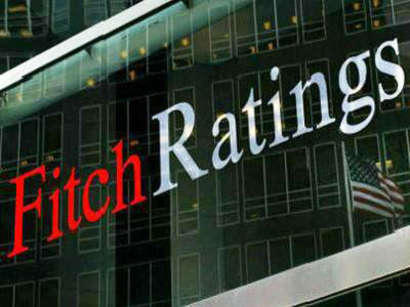Baku, Azerbaijan, May 3
By Elena Kosolapova – Trend:
The International Rating Agency Fitch Ratings has affirmed the Long-Term Issuer Default Ratings (IDRs) of Development Bank of Kazakhstan (DBK) and House Construction Savings Bank of Kazakhstan (HCSBK) at 'BBB-', the rating agency said in a message. The Outlooks are Stable. Fitch has also affirmed KazAgroFinance's (KAF) Long-Term IDRs at 'BB+' and revised the Outlooks to Negative from Stable.
The affirmation of the Long-Term IDRs and Support Rating Floors (SRFs) reflects Fitch's view of a high propensity of the Kazakhstani authorities to support the institutions, in case of need, due to: 100 percent ultimate (although indirect) state ownership; important policy roles in the development of non-extracting economic sectors (DBK), the house savings and mortgage system (HSCBK) and provision of state-subsidised financial leasing to the agricultural sector (KAF) in Kazakhstan; a track record of state funding and equity injections to support their expansion (HSCBK and KAF) or solvency (DBK); the moderate cost of any support that might be required, given DBK's wholesale debt of 4 percent of Kazakhstan's 2016 GDP or 6 percent of sovereign reserves at end-2016, and the other two institutions' wholesale debt being negligible relative to sovereign financial resources; guarantees on about 44 percent of DBK's third-party liabilities from Sovereign Wealth Fund Samruk-Kazyna (BBB/Stable); KAF qualifying as a material subsidiary for its owner, KazAgro National management holding JSC (BBB-/Stable), and the latter's $1.6 billion outstanding Eurobond issue with maturities coming due in 2019 containing a cross-default clause in case of subsidiary default; potential adverse reputational, economic or social (in case of HSCBK and KAF) consequences of not supporting them.
The one-notch differential between DBK and HCSBK's 'BBB-' Long-Term IDRs and the sovereign's 'BBB' ratings primarily reflects moderate risks stemming from indirect state ownership through JSC National Management Holding Baiterek (BBB/Stable), as Baiterek's own financial resources are limited, giving rise to moderate risk of delays with receipt and pass-through of sovereign support; the somewhat loose government supervision of both banks, as no government officials sit on the banks' boards of directors, and DBK is exempt from regulatory oversight by the National Bank of Kazakhstan; and the moderate risk that the sovereign could cease providing full support to all quasi-sovereign entities before defaulting on its own obligations in a severe stress scenario.
Fitch believes the authorities' plans to partially privatize HCSBK will not significantly affect the state's support propensity, given its intention to retain a controlling stake in the bank and maintain its policy role.
KAF is rated two notches below the sovereign mainly due to Fitch's view of its somewhat lower importance for the country's economy and financial system compared with DBK and HSCBK. The revision of the Outlooks on KAF's 'BB+' Long-Term IDRs to Negative from Stable reflects the authorities' plans to privatize a controlling stake in the company, potentially by end-2018, and hence the potentially reduced propensity of the state to provide support to the company in the future.
Of the institutions, DBK is most likely to require support due to its significant foreign debt ($4.5 billion or 72 percent of liabilities at end-2016) as well as local non-government wholesale obligations ($0.7 billion or 11 percent), moderate capital buffer (15 percent Fitch Core Capital (FCC)/risk-weighted assets (RWAs) ratio at end-2016) and significant foreign-currency loans (64 percent of gross loans at end-2016) predominantly to high-risk development projects.
The probability of KAF requiring state support in the future is also significant considering its operations in the vulnerable agricultural sector.
In Fitch's view, HCSBK is less likely to need support in the medium term in light of its solid loan quality (0.4 percent non-performing loan ratio at end-2016) and strong capital buffer (41 percent FCC ratio at end-2016).
Fitch noted that the Long-Term IDRs of all three institutions, and senior unsecured debt ratings of DBK and KAF, would likely be affected by a change in the sovereign ratings.
The ratings of DBK or HCSBK could be upgraded and equalized with the sovereign if the banks become directly owned by the government and state officials become more directly involved in the oversight of the institutions; or the government replaces or guarantees most of the banks' funding. A marked weakening of policy roles or association with the sovereign could result in negative rating action. However, neither scenario is currently expected by Fitch. DBK's ratings could also come under downward pressure if leverage increases markedly and asset quality deteriorates sharply without adequate capital support from the authorities.
KAF's Long-Term IDRs could be downgraded if the authorities' plan to privatize the company results in a material weakening of KAF's connection with the Kazakh government and the prospect of the company losing its policy role. The ratings could stabilize at the current level if privatization plans for KAF are abolished.






